Men dominate the outdoor industry. Walk the aisles of the SHOT Show or the corridors of sportsmen and conservation group headquarters around the country, and you’ll see little sign of a gender balance. Blame history and centuries of socioeconomic policies for creating the imbalance, but there’s also the simple fact that many men follow an outdoors career pathway because of a strong personal interest in shooting and hunting.
But it’s changing out there. Fast. At today’s consumer sportshows, you’re as likely to see a family cruising the aisles as you are a pack of young bucks. Youth clay target, archery and fishing leagues contain a strong corps of young women eager to outcompete the boys. The outdoor industry has slowly been making gains in efforts to hire and promote more women, and perhaps no other conservation organization exemplifies efforts to become more inclusive and welcome women into the leadership fold than Pheasants Forever and Quail Forever.
More than a quarter of the organization’s 265 employees are now female, and that percentage is increasing. Women comprise 47 percent of the American workforce, and demographers expect that number to grow, too. The business of hunting, fishing and conservation has a higher percentage of men than many other industries, but the 70 women now working for Pheasants Forever and Quail Forever represents an all-time high. And that ratio will continue to move forward.
On the leadership front, women always have had a presence. Loral I. Delaney, who co-owns Armstrong Ranch Kennels and the Game Fair outdoor show in central Minnesota, was Pheasants Forever’s first female board member early in the organization’s history. Other past female board members include Lollie Plank, Berdette Zastrow, Diane Lueck and Cheryl Riley.
As for memberships, about 4 percent of mailing labels receiving this magazine bear a woman’s name. Most families still place the membership to an outdoor group in the name of the husband. However, based upon Minnesota’s Game Fair, Minnesota’s State Fair and other special events, Pheasants Forever leaders definitely are seeing more young women joining “The Habitat Organization” on their own.
“We can see through our Facebook statistics that 20 percent of our followers are women, so the group of ‘prospective’ members is a higher percentage of women than the historical tally,” said Bob St.Pierre, vice president of marketing for the organization.
As for staff, the 40 women Farm Bill biologists spread throughout the country represent a third of the 120 Farm Bill biologists within the organization, but more and more women are commanding leadership roles, too.
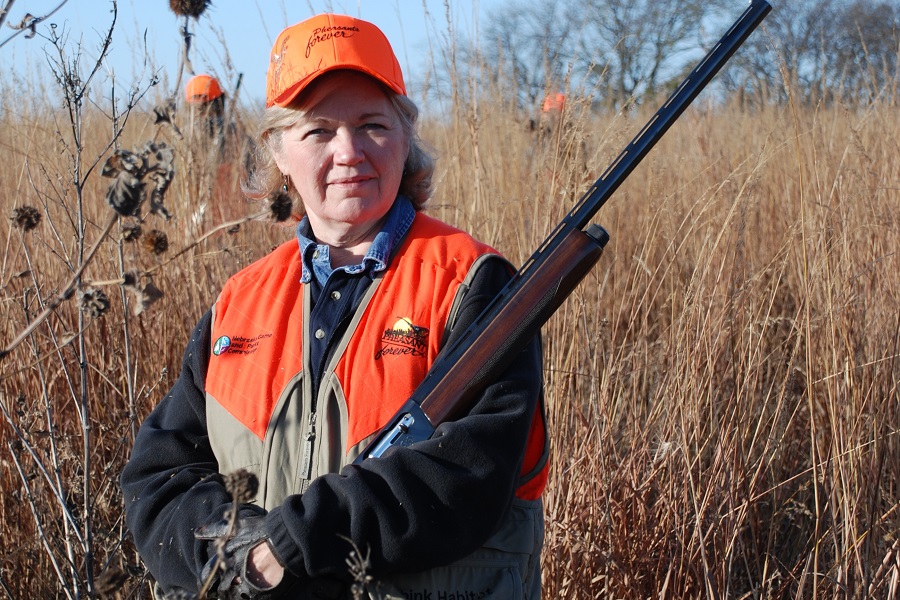.jpg.aspx)
Cheryl Riley started as a board member and was hired as PF’s vice president of education and outreach in 2005. She’s retiring in June from an incredibly productive career that she’s loved (and plans to continue via volunteering). In addition to encouraging young women to engage with the organization, she’s advocating for them to pursue leadership positions.
Riley began her career at the Missouri Department of Conservation before moving to the National Wildlife Federation, then coming to Pheasants Forever a decade ago. Early on in her career, she remembers frequently being the only woman in the room, and she believes today’s young women face a more level playing field on the national conservation scene.
“Early on, 35 years ago, the field wasn’t quite ready for women, and I definitely faced some discrimination in my early years,” she said. “It’s a much different time today. Women feel supported and see unlimited opportunities today.”
Riley believes all people can bring different skills and talents to an organization, despite age or gender. That said, she – and other women staff interviewed for this article – noted that women often bring a more collaborative mindset to their work that helps build consensus and relationships. That approach helps get results in field operations, at national headquarters and in Washington D.C.
This article interviewed 10 women about how they view their roles and acceptance within the organization. All are proud members of “The Habitat Organization” and the greater conservation fraternity. Several women cited their experience in the dog training world as building a bridge to working with men in the outdoors field. Like any professional experience, being able to connect and speak the language of colleagues eases the transition, and dogs often provide common ground for people of all backgrounds.
Women leaders on ‘board’
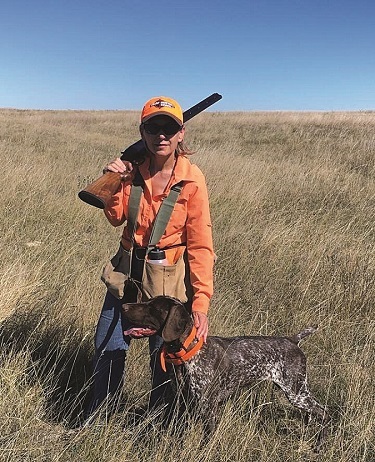.jpg.aspx?width=325&height=400)
Pheasants Forever and Quail Forever now have three women on the national board: Shefali Mehta, Marilyn Vetter and Nancy Anisfield. Vetter has served on the PF board for 18 months. She also has a long tenure with the North American Versatile Hunting Dog Association board of directors. Currently secretary of the Pheasants Forever and Quail Forever’s Board of Directors, the former North Dakota woman majored in communications in college before eventually entering the pharmaceutical industry, which still employs her today. The strength of the board, she says, is that it’s brought together people from all walks of life who don’t focus on the day-to-day operations of the nonprofits, but rather a broader, more holistic view of where the organization is headed. She believes part of that is helping women find a comfort zone within PF simply via understanding its conservation mission.
“People think we’re only for hunters and that’s not true, and I try to spread that message,” she said. “Better hunting is a positive benefit of the tremendous work the group does on behalf of habitat and conservation for all species, and I think women can understand that mission and message very well.”
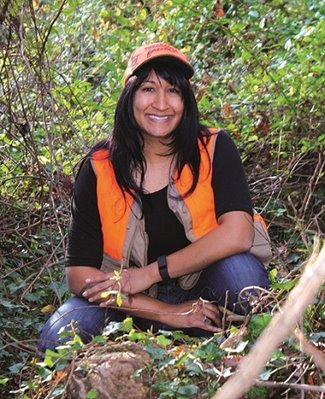
Board member and current Vice Chair Shefali Mehta grew up far from the North Dakota farming landscape that framed the early part of Vetter’s life. Raised in Connecticut, Mehta has immigrant parents from India and comes from a different cultural background than the average PF or QF member. Mehta is a vegetarian who doesn’t view that dietary choice as contrary to the mission of a habitat organization. She’s built a career focused on the economics of environmental policy and wrote her grad thesis at the University of Minnesota on lion hunting and conservation in Tanzania. She has a PhD in Agricultural and Environmental Economics and was introduced to Pheasants Forever through her previous employer, McKinsey & Company, an international consulting firm. She cites her experience in strategic planning and implementation as natural skills to bring to the board.
An Alexandria, Virginia-based economist with a global agricultural company, Mehta says the conservation mission of Pheasants Forever resonates strongly with her and she believes a long game for outdoor groups of being more inclusive with women, kids and people of color will ensure a broader, more stable conservation legacy. Studies also have shown the value of an overall diverse workplace, Mehta said. Organizations with a bigger pool of people and opinions bringing different life experiences can process information differently and find a wider range of outcomes to challenges and problems. The private sector in America and beyond is grappling with the same issues in building more diverse leadership to find better solutions in an ever-changing world.
“We need to continue to work to get smart women contributing,” she said. “We’re tackling some of the world’s toughest problems, and when you have women and men working together, you get different outcomes and better solutions.”
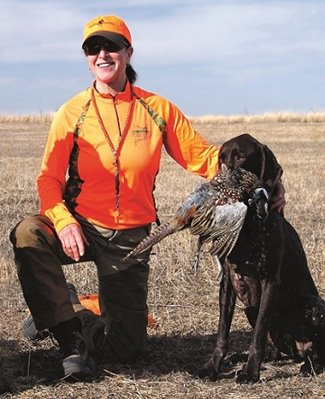
Board member and current chair of the board’s governance committee, Nancy Anisfield hails from Vermont, a state with few pheasants or quail. An outdoors writer and photographer, Anisfield hunts pheasants, quail and other upland birds not just in New England but in many other states. She joined the hunting community over 20 years ago when she got her first bird dog. Anisfield shares the view that all citizens – men and women alike – who partake of America’s resources should help protect them as well. “I had an uncle in New Jersey with German shorthairs that hunted preserves,” she said. “I wasn’t that interested in hunting growing up, but the first time I went into the field with a pointing dog and saw it work, I thought that was about the coolest thing in the world. I wanted my own bird dog, and eventually realized that if that dog was going to get the work it deserved, I needed to hunt. And I fell in love with hunting.”
Ansfield describes herself as “anti-pink” and generally not interested in terms like “women conservationists,” which she views as unnecessarily separating people who are naturally focused on the same cause. As for her first experience on a conservation organization board, she gives the Pheasants Forever and Quail Forever governing body a solid thumbs up.
“I’ve felt 100 percent accepted on the Board. Sure, person-to-person there always will be some men that look at women differently, but as a Board member, I’ve been totally supported, accepted and mentored,” she said. “We have a terrific Board of dynamic people with lots of energy and strong personalities.”
Women afield
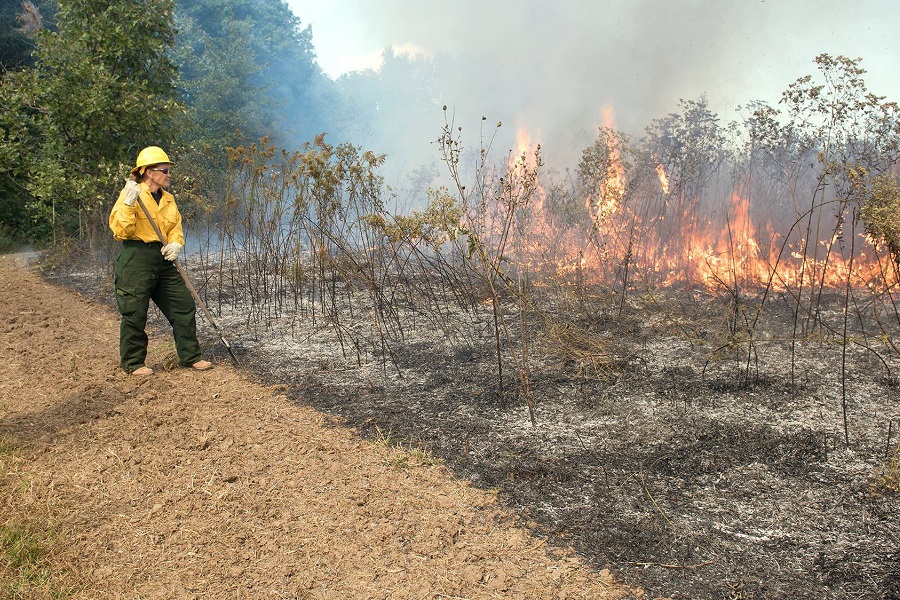
Several women hold state coordinator positions within Pheasants Forever and Quail Forever, including Elsa Gallagher in Missouri. After starting out with the state’s Department of Conservation, Gallagher eventually joined Quail Forever and marked her 10th year with the organization this past August. One of the few female field employees when she began, she’s seen the gender balance change tremendously during her career.
“When I started, during staff meetings I’d have the women’s restroom all to myself… if there was a women’s restroom,” said Gallagher, who’s also an avid canine field trialer. “Now at all of these large meetings there’s a line.”
Joy Eastman started as a receptionist at Pheasants Forever’s national offices in 2001, moved into the membership department and now works as the group’s human resources manager. She’s watched many young women, including working moms, join the organization and move onto managerial and leadership roles. She thinks the natural “softer side” of women helps in listening to other’s perspectives and serving as mentors to other young employees, women and men alike. She and Kelsi Wehrman, the Nebraska state coordinator, agreed that women bring a different dynamic to a workplace and balance to an organization. Wehrman estimates that nearly 50 percent of Nebraska landowners are women, and those landowners seem to connect with women biologists and resource professionals a little faster.
“There just seems to be a little more trust and bond there right away,” she said.
Eastman doesn’t think it’s a coincidence that many women who join the organization stay for the long haul. “I consider the people at Pheasants Forever my work family,” she said. “It’s a great place to work, and the women in leadership positions here are great role models.”
Story by Rob Drieslein the managing editor of Outdoor News Publications, which is based in Minnesota. Read more by Drieslein at outdoornews.com
This story appears in the Winter issue of the Pheasants Forever Journal. Become a member of Pheasants Forever today and you’ll automatically become a subscriber to our publication.
Join now!